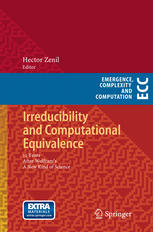

Most ebook files are in PDF format, so you can easily read them using various software such as Foxit Reader or directly on the Google Chrome browser.
Some ebook files are released by publishers in other formats such as .awz, .mobi, .epub, .fb2, etc. You may need to install specific software to read these formats on mobile/PC, such as Calibre.
Please read the tutorial at this link: https://ebookbell.com/faq
We offer FREE conversion to the popular formats you request; however, this may take some time. Therefore, right after payment, please email us, and we will try to provide the service as quickly as possible.
For some exceptional file formats or broken links (if any), please refrain from opening any disputes. Instead, email us first, and we will try to assist within a maximum of 6 hours.
EbookBell Team

4.0
46 reviewsIt is clear that computation is playing an increasingly prominent role in the development of mathematics, as well as in the natural and social sciences. The work of Stephen Wolfram over the last several decades has been a salient part in this phenomenon helping founding the field of Complex Systems, with many of his constructs and ideas incorporated in his book A New Kind of Science (ANKS) becoming part of the scientific discourse and general academic knowledge--from the now established Elementary Cellular Automata to the unconventional concept of mining the Computational Universe, from today's widespread Wolfram's Behavioural Classification to his principles of Irreducibility and Computational Equivalence.
This volume, with a Foreword by Gregory Chaitin and an Afterword by Cris Calude, covers these and other topics related to or motivated by Wolfram's seminal ideas, reporting on research undertaken in the decade following the publication of Wolfram's NKS book. Featuring 39 authors, its 23 contributions are organized into seven parts:
Mechanisms in Programs & Nature
Systems Based on Numbers & Simple Programs Social and Biological Systems & Technology Fundamental Physics The Behavior of Systems & the Notion of Computation Irreducibility & Computational Equivalence Reflections and Philosophical Implications.